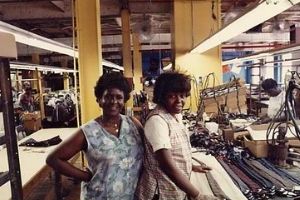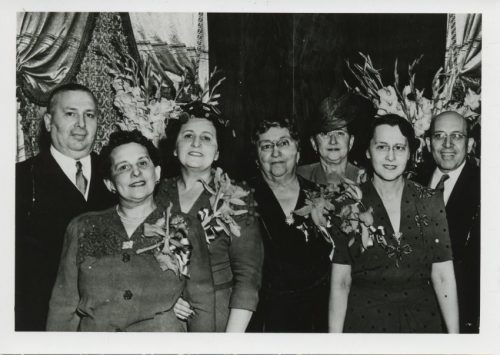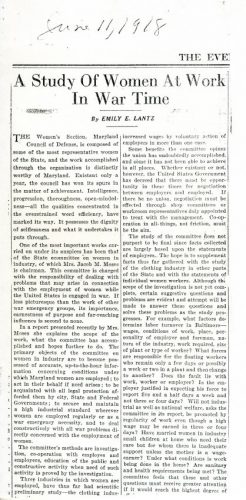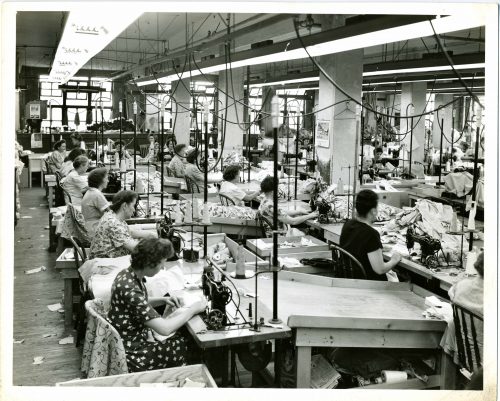We Need to Talk About Working Mothers

A blog post by Deputy Director Tracie Guy-Decker. Read more posts from Tracie by clicking HERE.

In the midst of this pandemic and quarantine and all that has accompanied them, we need to talk about working mothers.
[Steps onto soapbox]
There is no lack of evidence that the current reality is taking a huge toll on women, especially working moms. The Washington Post, the Today Show, the New York Times, and NBC News have all featured stories about the undue burden the “new normal” is placing on working moms.
As a working mom myself, I can tell you anecdotally, the struggle is real. I am working harder, both in my professional life and in my life as a parent, than I ever have. My situation is compounded by my husband being stationed overseas right now with the US Navy. On the other hand, I only have one kid. Still, it is rough out there, well, in here, right now.

Here’s the thing: even in the before times, I was fond of saying that we working moms are expected to work as if we didn’t have kids, and parent as if we didn’t have jobs. It was always an impossible ask, but now, in quarantine, when we’re doing it all simultaneously from our dining rooms, now we can’t even pretend.
I had thought maybe this new reality would push our culture toward a change. When all this started, I thought, “you know, maybe the silver lining will be a new attitude toward working parents—a new appreciation for all we go through and a better way to support each other.”
Friends, that is not what is happening.
At JMM, we send surveys after every program. Hearing from our participants helps us better serve you, our family of members and friends. Both validation and critique are valuable, as they allow us to do more of what’s working and/or improve what could be better. Let me reiterate: we appreciate constructive criticism. However, after one of JMM’s presentations in the past couple of weeks one of our participants had critique not of the content of the program, but of the circumstances of one of the presenters. They said:
“I really love children – it is my life’s work – but unless the young lady whose young child was playing in the background is a single mom who didn’t have anyone to watch her child, it would have been more professional if she would have had the child under supervision in another area.”
Now, the fact of the matter was the “young lady,” who is actually a professional adult, was flying solo with her two young children because her husband had been exposed to Coronavirus and they were trying to protect their children from possible exposure. But that doesn’t really matter. What I want to unpack here is the fact that this survey respondent, who claims to love children and have worked with them their whole life, somehow doesn’t recognize that 1) children’s voices carry and 2) if the very professional person on the screen has children’s voices in the background, it’s because SHE DOESN’T HAVE A CHOICE. And don’t even get me started on the ‘unless she’s a single mom who didn’t have anyone to watch her child’ comment. Because single moms are inherently unprofessional and therefore get a pass for seeming unprofessional? Is that why you bring that up?
(And I can’t help but wonder if it had been a man instead of a woman giving the presentation with an audible toddler in the background if the same participant might have thought “oh, what a great dad he is.”)

Friends, the presentation was appropriately professional. The only thing I might have changed would have been to explicitly acknowledge the audible toddler, maybe even inviting the child to say hello. Because having children visible or audible is not unprofessional.
If having children genuinely diminishes professionalism, we need to stop shaming moms and work on changing our definition of professional. The whole notion that professional ≠ parent is a false binary. It. Is. Hurting. Us. We have got to break this harmful either/or. For the survival of our species and the advancement of our society, we must find a way to hold both/and. Both a parent and a professional. Both a loving mother and a dedicated manager. Both a caring parent and a valued employee. Both. And.

And so, I invite you to set an intention to open your thinking. Hold both/and in your mind and in your heart. And the next time you hear a professional mom (or dad)’s kid in the background of a Zoom call or a lecture or a client meeting, if you feel some irritation rising, maybe the words, “it would have been more professional if…,” try taking a deep breath. Remind yourself she or he is doing the best they can; that they are both/and, and that has to be okay. (In fact, sometimes it’s better than okay. When we allow children to be delightful diversions not annoying distractions, the world is better for the children and for us.) And if the parent is someone you actually know, I invite you to go one step further, and say, “how can I help?”
I know there isn’t much we can do for one another right now in this pandemic, but speaking only for myself, being truly seen and acknowledged would be a help.
[Steps off of soapbox]

2 replies on “We Need to Talk About Working Mothers”
Thank you very much for writing this. I hope we can do a better job supporting and not judging each other.
Thanks for the support Patty!